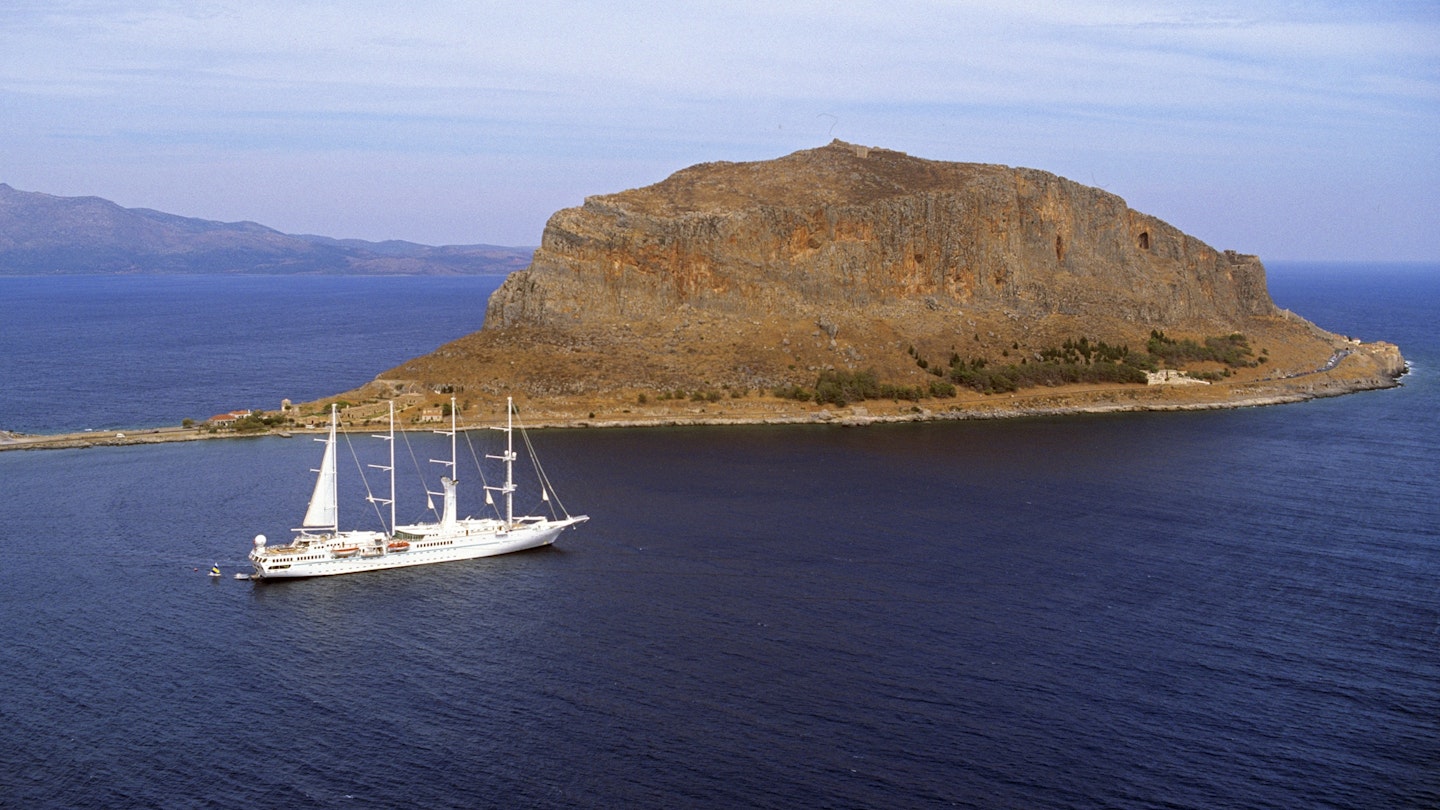Multiply everything a typical Greek island has to offer travelers, add some, and there will still be more to experience and enjoy at the Peloponnese.
This versatile peninsula is relatively untouched by mass tourism, and you’ll be rewarded for getting off the beaten path in this part of Greece that is fast climbing up the “bucket lists” of sophisticated and in-the-know travelers.
The Heart and Soul of Greece
The Peloponnese – or Moreas, as it was known in the medieval era – embodies all the tangible and abstract elements that make up Greece: millennia-old history full of myths and legends, magnificent civilizations, suitors and conquerors, resistance and revolution, ancient sites and medieval castles, modern buzzing towns and picturesque villages, superb local cuisine, time-honored traditions, spectacular mountain scenery, and crystal-clear waters.
The peninsula has been inhabited since prehistorical times, deriving its name from the myth of King Pelops. Over the centuries, the first great Greek civilization – the Mycenaean – flourished here; the first Olympic Games were held in Olympia in 776 BC, and two centuries ago, the first revolutionary shot in the war of independence from the Ottomans was fired here.

Gods, Heroes, and Mythological Creatures
Hercules, the greatest of the ancient Greek heroes, is said to have performed most of his 12 arduous labors in the Peloponnese. The Nemean Lion, The Lernaean Hydra, the Erymanthian Boar, and the Stymphalian Birds are among the loathsome creatures he hunted down in the mythological forests of the region.
According to Homer’s epic poems Iliad and Odyssey, it was here that Paris, the son of the king of Troy, lured away Helen, the queen of Sparta, causing the entire Greek world to fight the decade-long Trojan War.
Additionally, it’s said that Pan, the lustful, goat-legged god of the wild, was known to hang out in the lush forests of Arcadia, accompanied by nymphs, dryads, and naiads – female immortal creatures symbolizing the wind through the leaves and the waters of the mountain springs and rivers.

A Vast Open-Air Museum
There is no end to significant archaeological sites you can admire in the Peloponnese.
Currently, Ancient Mycenae, home of Trojan War leader Agamemnon, is one of the most impressive archaeological sites in the country, designated as a World Heritage Monument. The Lion Gate, the Cyclopean Walls, the Royal Tombs, and the Treasury of Atreus, among other stunning ruins, are all visible and open to the public.
Ancient Olympia, the birthplace of the Olympic Games, is a sacred ancient site steeped in history and myth. It features a small yet significant Archaeological Museum, and another important site dedicated to the history of the Games.

The Ancient Theatre of Epidaurus – a venue where performances of ancient plays still occur during the summer – is an uplifting location not to be missed. Alternatively, visit the remains of the stadium at Ancient Nemea, once a sanctuary to Zeus and the home of the biannual Nemean Games.
Ancient Messini is a relatively underrated gem, featuring an excavation in progress, with a wonderfully reconstructed theatre and an impressive stadium dominating the landscape.
Byzantine and Medieval Allure
After the Roman period, the Peloponnese became part of the eastern Byzantine Empire, and various invaders, including Slavs, Francs, Venetians, and Ottomans, have left their cultural marks on the peninsula.
Medieval and Byzantine remains are abundant, notably the fortified city of Mystras, a UNESCO World Heritage site, and the spectacular inhabited fortress on the rock of Monemvasia.
Many magnificent castles from the era are scattered throughout the peninsula, such as those in Koroni, Methoni, Nafplio, Kalamata, Patra, and Navarino, making the Peloponnese a paradise for history enthusiasts and a captivating terrain for anyone fascinated by the evolution of human civilization.

Legendary Food and Hospitality
The Peloponnese offers more than just its glorious past and majestic monuments. The region combines mountainous landscapes with thousands of miles of pristine beaches, providing countless options for travelers.
The local cuisine is renowned for its exclusive delicacies, crafted from domestically produced fresh ingredients, making it one of the most flavorful in Greece. There are gourmet options for seafood and meat lovers as well as delightful recipes for vegetarians and vegans. The wines from the region, including delicious crispy whites and robust reds, are highly regarded in the emerging Greek viniculture scene. Many can be enjoyed in the numerous local wineries nestled among lovely vineyards, welcoming visitors.
Last but not least, the local people, who are unaccustomed to the mass tourism found in other destinations, extend a warm welcome and treat visitors as cherished guests. They happily share the best that their land – blessed by gods and nature – has to offer.




